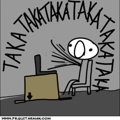Soh Kam Yung reviewed The Tainted Cup by Robert Jackson Bennett (Shadow of the Leviathan, #1)
A 'Sherlock Holmes' style mystery set in a fascinating world.
4 stars
An interesting mystery set in a fantasy world. Featuring two characters, Ana Dolabra and Dinios Kol, that contain mixed features of Sherlock Holmes and John Watson. Here, they are investigating the mystery of a man killed when a tree grew out of his body. Solving this actually takes only a few chapters: it is the ramifications of the murder and further discoveries that would take up the rest of the book, and test the abilities of the two characters (and the reader) to solve it.
In this fantasy world, Ana is the detective, making deductive leaps based on the evidence gathered by Dinios. Dinios is an engraver, a person modified via chemistry (made from the flesh of leviathans) to be able to recall every detail seen. But Dinios has a secret recall ability that would also prove crucial in the investigation. Both are living in an Empire, made up …
An interesting mystery set in a fantasy world. Featuring two characters, Ana Dolabra and Dinios Kol, that contain mixed features of Sherlock Holmes and John Watson. Here, they are investigating the mystery of a man killed when a tree grew out of his body. Solving this actually takes only a few chapters: it is the ramifications of the murder and further discoveries that would take up the rest of the book, and test the abilities of the two characters (and the reader) to solve it.
In this fantasy world, Ana is the detective, making deductive leaps based on the evidence gathered by Dinios. Dinios is an engraver, a person modified via chemistry (made from the flesh of leviathans) to be able to recall every detail seen. But Dinios has a secret recall ability that would also prove crucial in the investigation. Both are living in an Empire, made up of people modified to be stronger, faster, more intelligent, etc., but all driven to protect the empire from the attacks of leviathans from the sea, who emerge every wet season on to the Empire's land. The leviathans, and the protections thrown up to shield the empire from them, would form the world building background to the story.
During the course of the investigation, this reader managed to deduce some points in the investigation and the true identity of one suspect. It would also implicate people who are willing to sacrifice people and entire regions for personal gain, and motivate others who want to get revenge for such abuses.
A fascinating world that shows the investigative prowess of the two characters, but promises more revelations about the world they live in future books.









